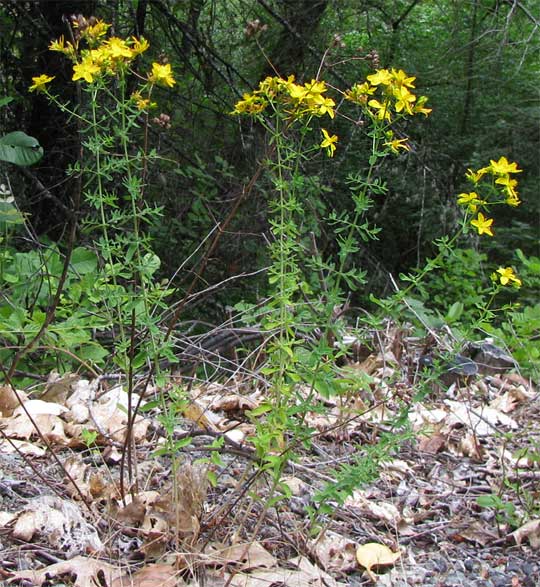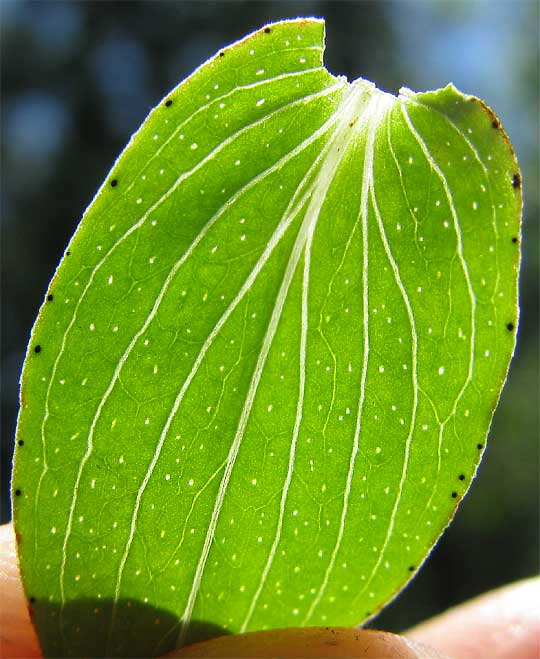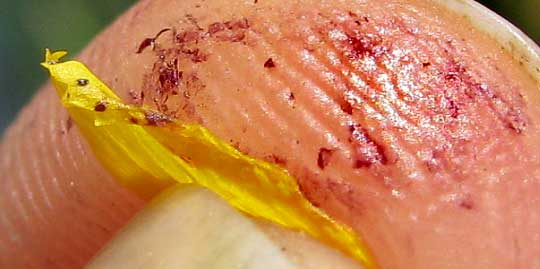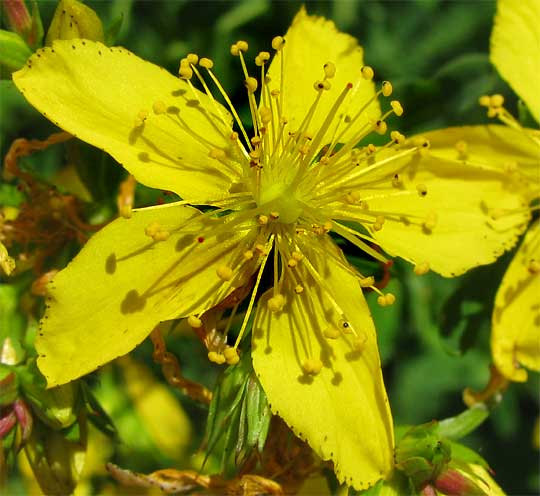Excerpts from Jim Conrad's
Naturalist Newsletter
from the June 27, 2009 Newsletter, issued from the Siskiyou Mountains west of Grants Pass, Oregon:
ROADSIDE ST. JOHN'S WORT
Below you see a plant that these days abundantly flowers along roadsides and in other disrupted habitats. It's THE St. John's Wort, HYPERICUM PERFORATUM, an invasive perennial herb from Europe listed as a noxious weed in more than twenty countries.

I say "THE" St. John's Wort because several species go by that name, but this is the one that so much fuss has been made about because of its fame as an herbal treatment for depression. It's so established as a medicinal herb that in some countries, like Ireland, a prescription is required to buy its extracts in tablet or capsule form. It's also sold in teabags and in tinctures. As I began writing this, I stripped some leaves from a plant near the trailer, steeped them for five minutes in hot water, and the resulting tea had a slightly medicinal but wholesome taste, neither good nor bad, just its own distinctive flavor. Don't crush the green leaves or your tea will taste a bit grassy.
You can see the source of St. John's Wort's medicine below:

There a St. John's Wort leaf is being held against the sun. The pale spotting explains the plant's species name, perforatum, for they seem "perforated," plus they show the source of the medicine, the "glandular dots" filled with fragrant oils and other chemical compounds. Black dots adorn both the leaves' and the petals' margins. If you pinch a petal's black-dotted margins it stains your fingers purplish as shown below. This plant is just chocked full of interesting chemicals!

You can see St. John's Wort's distinctive flower below:

Characteristic of Hypericum flowers are the five yellow petals, the many stamens, and three to five styles (three in this species). Notice the black dots around the petals' margins, which not all Hypericum species have.
So, do extracts from this species really have medicinal value? An analysis of 29 clinical trials with more than 5000 patients concluded that St. John's Wort extracts were superior to placebos in patients with major depression. St. John's Wort was rated as just as effective as standard antidepressants prescribed by regular doctors. Moreover, side effects were half those resulting from the use of newer serotonin reuptake inhibitor antidepressants and one-fifth that of older tricyclic antidepressants. If you Google "St. John's Wort medicinal" you'll find many pages suggesting uses of the plant for ailments ranging from alcoholism to serving as an antibacterial agent against gram-negative bacteria, plus there'll be innumerable pages eager to sell you St. John's Wort products.
Once again, here is an abundant roadside weed free for the taking.